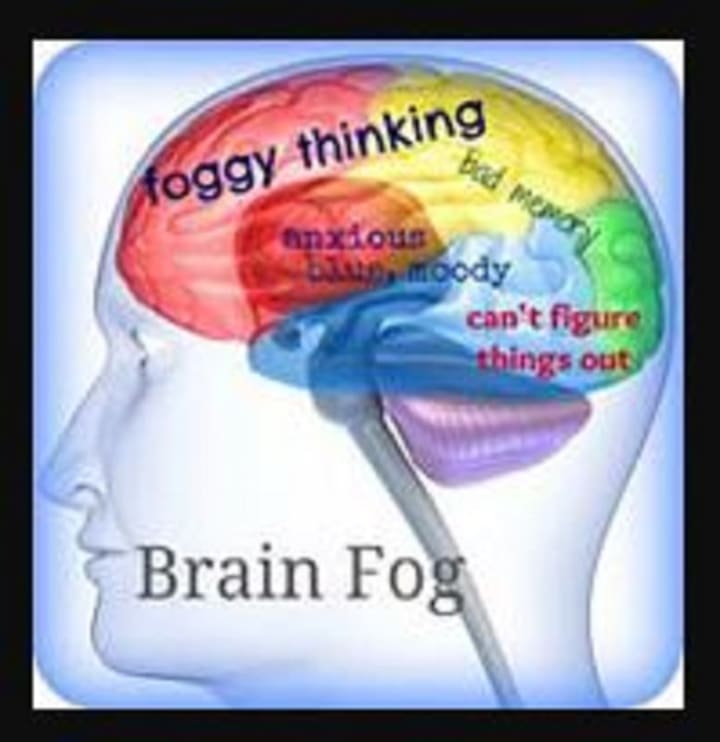
Wet brain is more than just an alcohol-soaked brain. Did you know that it is a very real and very serious brain disorder called Wernicke-Korsakoff syndrome?
What is wet brain?
Wet brain, also known as Wernicke-Korsakoff Syndrome (WKS), is a deterioration of the brain is commonly seen in alcoholics and others who are severely malnourished. It is caused by severe malnourishment, mainly the lack of vitamin B1. This can include people suffering from anorexia and bulimia, as well.
Wernicke-Korsakoff Syndrome is actually two separate syndromes; Wornicke's Encephalopathy (encephalopathy is a general term describing a disease that affects the function or structure of your brain and it should be treated as a medical emergency) and Korsakoff's Psychosis (a chronic memory disorder caused by severe deficiency of thiamine, vitamin B-1) were named after the two doctors that discovered them. The two conditions overlap and, for a short time, develop almost simultaneously, making the symptoms appear to indicate a single illness.
Is WKS dangerous?
Yes. WKS is a progressive disease that involves inflammation and deterioration of the brain. It mimics a type of dementia similar to Alzheimer’s that, if left untreated, becomes permanent and eventually causes death. In fact, nearly 20 percent of those who develop it will die because they mistake the symptoms for drunkenness, allowing the disease to progress until it is too late to reverse the damage.
Are there warning signs to look for?
It is important to understand the signs and symptoms of both parts of this illness in order to know how far the disease has progressed because, while during the first stage the damage to the brain can still heal, once the second phase begins, it becomes permanent.
In alcoholics, WKS often remains undetected-and therefore untreated, because the signs are mistaken for intoxication.

Treatment
Treatment, at this point, is crucial to control the symptoms and keep them from getting worse.
Phase One: Wernicke’s Encephalopathy
During the first stage, you will see these symptoms begin to appear:
- Slowed eye movements, lazy eye, droopy lids
- Rapid eye movements, such as flicking eyes side to side, blinking
- Loss of muscle coordination, staggering, loss of balance
- Confusion, loss of short term memory and intellect
- Lethargy, depression, inability to pay attention
- Tremors in the hands and feet, then the arms and legs
- Muscle twitching and muscle pain
These symptoms are the first indication of trouble. It is during this stage that the brain still has a chance to heal and progression of WKS can be reversed. However, because these symptoms so closely mimic intoxication and aren't recognized for the affliction that they are, it does not become apparent that something else is wrong until much later.
Phase Two: Korsakoff’s-Psychosis
Korsakoff's Psychosis starts to develop even before the Wernicke’s symptoms begin to subside. Memory problems become permanent and may be strikingly severe while other thinking and intellectual skills are relatively unaffected. Mental deterioration, at this point, can no longer be reversed. With treatment, it’s possible to prevent one’s illness from getting worse, but the damage done thus far is here to stay. Here are the symptoms you may see:
- Progressive memory loss
- Amnesia (permanently lost memories)
- Confusion, difficulty learning or grasping new information, forgetting things that happened only moments ago
- Confabulation (lying), possibly to compensate for the fact that they can’t remember things, which most certainly would cause some embarrassment and worry
Treatment
Treatment, at this point, is crucial to control the symptoms and keep them from getting worse.
Treatment consists of reversing the thiamin deficiency by giving thiamin supplement by injection at first, then orally along with a healthy vitamin B-rich diet.

Hospitalization may be necessary at first, until some health is restored to the patient. Thiamin treatments started this late will not improve any loss of memory or intellect, but may improve the person’s thinking and clear some of the confusion.
Scientists are also finding that some drugs used to treat Alzheimer’s may help improve some of the memory damage, but studies concerning that are still in progress.
The best way to avoid WKS is to avoid drinking too much alcohol. If you have been abusing alcohol and can't stop on your own, seek a professional to help you safely detox. Alcohol withdrawals can cause seizures and can even be fatal.
About the Creator
Cindy S.
Cindy is a Social Worker from the northeast. Through countless online courses she continues to improve and flourish. She may not write full-time, but she takes great care and pride in the content she produces!






Comments
There are no comments for this story
Be the first to respond and start the conversation.